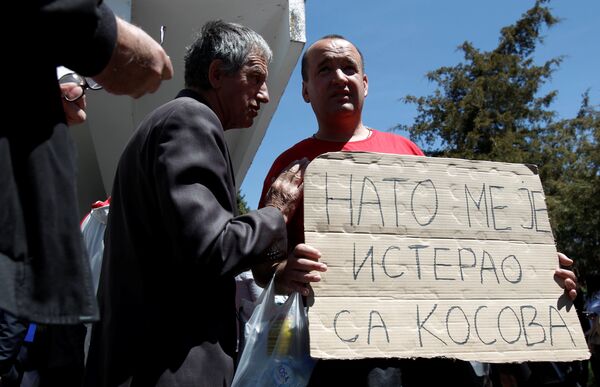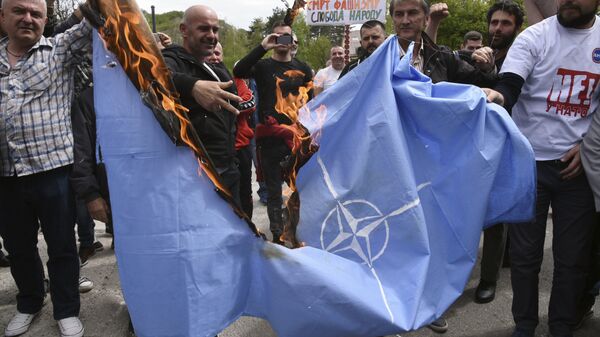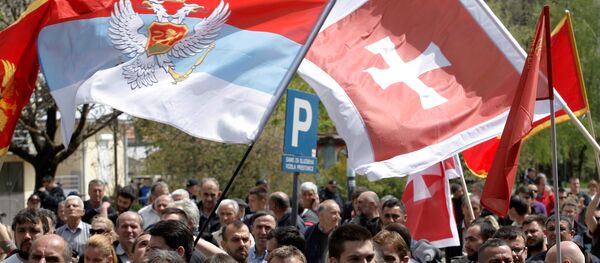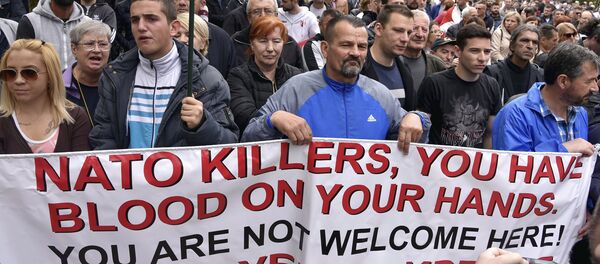The ratification of the protocol signed in May 2016 by all NATO member nations was a necessary requirement for Montenegro joining the group.
Montenegro's Prime Minister Dusko Markovic said that the formal joining of NATO, which could take place at the next summit of the military alliance in May, would add to the stability and economic benefit of the country and to the Balkans at large, including an increased influx of foreign investments to Montenegro.
Earlier, the Montenegrin Defense Ministry reported that the country's annual contribution to the NATO budget will stand at 450,000 euros, or 0.027 percent of the annual budget of the organization.

Speaking to Sputnik, Professor Vladimir Kozin of the Russian Academy of Military Sciences said that Montenegro's joining of NATO will result in a spate of grave consequences for the country.
He said that "first of all, a number of Montenegrins refused to support their country entering NATO."
"Also, it is worth recalling that Montenegro has not contributed to the common defense coffers of NATO bloc before. That's why they will twist its arms and force Montenegro implement the decisions of NATO summits in 2014 and 2016, which stipulate the country allocating 2 percent of its GDP for NATO's budget," Kozin said.
In addition, Montenegro will be forced to purchase NATO's equipment, weapons and ammunition, according to him.
"All this may lead to social benefit cuts in Montenegro and Montenegrin troops being sent to the world's hot spots as part of the NATO contingents. In a word, there will be a partial loss of Montenegro's military and political sovereignty," Kozin added.
He also said that Montenegro joining NATO will most likely damage Podgorica's relations with Russia.
"Practice has already showed that all those states that were recently admitted to NATO embarked on sharp anti-Russian sentiments. As we know, it is a protracted illness which cannot be treated quickly. This is why it will affect Russian-Montenegrin tourist and business ties, as well as contacts between ordinary people," Kozin concluded.
Montenegro was invited to join NATO in December 2015, as part of the first expansion of the alliance into Eastern Europe in six years.
Podgorica accepted the invitation on December 3, 2015. However, the government's decision to join NATO triggered mass protests throughout the country.
Russia has repeatedly expressed concerns over the further expansion of NATO into the east. Last month, the Russian Foreign Ministry criticized the political course of Montenegro that sees them joining the alliance without holding a nationwide referendum.
Never miss a story again — sign up to our Telegram channel and we'll keep you up to speed!




